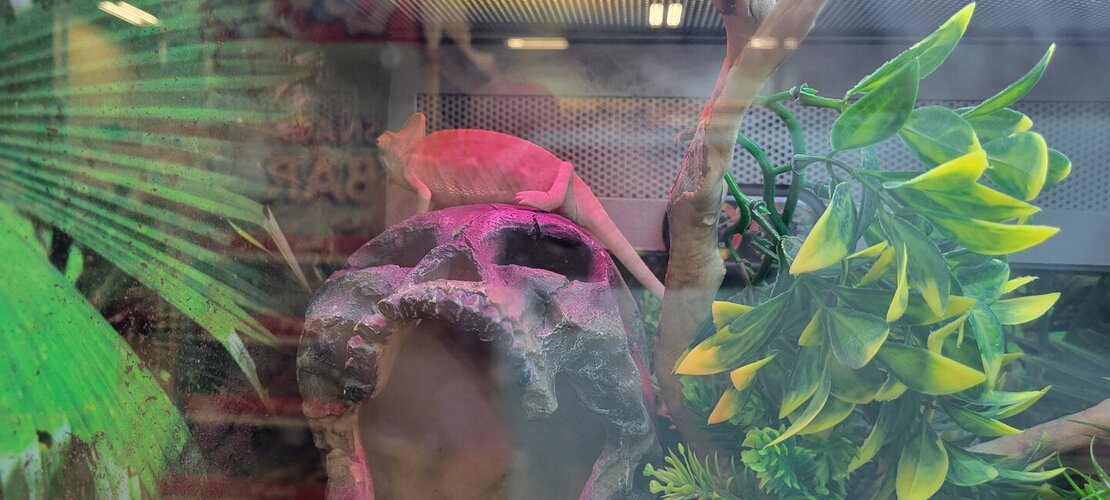Hi friends, is something wrong with this chameleon I found at a petstore yesterday?
Her coloring is very strange to me, but I'm colorblind so I can't really be sure.
My wife says the chameleon does not have those red spots on her back; it's just the heat lamp she's sitting under.
The petcare manager says she has a great appetite and eats a lot. But she just looks like a weird color to me?
If this is a condition, can it be fixed with better care or is it too late? I'm building a bioactive terrarium for my very first chameleon (haven't found a chameleon yet btw). So if this one could be nursed back to health I'd take her.


Her coloring is very strange to me, but I'm colorblind so I can't really be sure.
My wife says the chameleon does not have those red spots on her back; it's just the heat lamp she's sitting under.
The petcare manager says she has a great appetite and eats a lot. But she just looks like a weird color to me?
If this is a condition, can it be fixed with better care or is it too late? I'm building a bioactive terrarium for my very first chameleon (haven't found a chameleon yet btw). So if this one could be nursed back to health I'd take her.





